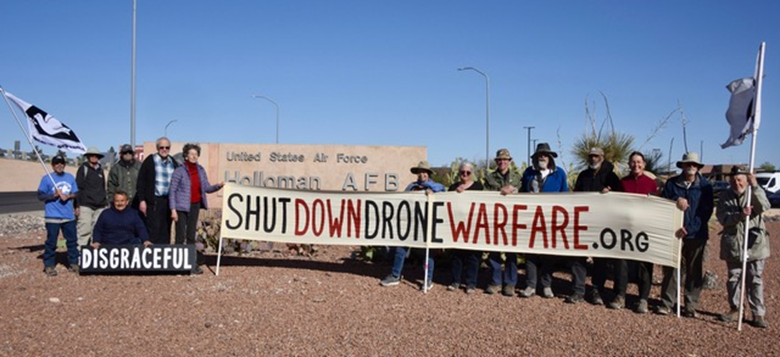(Reposted from October 16, 2020)
Harry Targ
In a joint statement issued by the governments of Israel, the United Arab Emirates (UAE) and the United States on August 13, the two Middle East countries agreed to normalize their relations. Thus, following Egypt and Jordan, the UAE is the third country in the region (in this case in the Persian Gulf) to establish relations with Israel. The agreement, known as the Abraham Accords, include establishing telephone communications, commercial flights, and most importantly military cooperation.
While Israel, in exchange, promised to suspend parts
of planned expansion of West Bank settlements, the geopolitical significance of
the Accord includes growing Arab regime opposition to the Palestinian people
AND formal expansion of a coalition of armed regimes who are enemies of Iran.
Middle East expert. Juan Cole reported that:
“The step was, however, politically and economically
expedient for the signing parties. The Emirates is a union of seven Gulf
sheikhdoms, though oil-rich Abu Dhabi is their de facto leader. The population
is 9.6 million, but only about a million of those are citizens, with the rest
being guest workers who can be rotated out of the country at will. The citizen
population is like that of Rhode Island. The UAE gross domestic product, driven
by oil in Abu Dhabi and by finance and tourism in Dubai, is $405 billion,
slightly higher than Israel’s $387 billion.”
Cole listed impacts of the accords:
--It could increase candidate Donald Trump’s
favorability with Florida voters, many of whom are Israeli supporters.
--It increases the coalition of anti-Iranian states in
the region: including Israel, Saudi Arabia, and Bahrain. “The Saudi-UAE-Bahrain
axis offers basing for US military forces as well as for electronic
surveillance, and the addition of Israel increases all those capabilities.”
--It will increase the arguments of the pro-Israel
lobby for greater military technology transfer to Israel.
And, of course, as Cole implied, the forces allayed
against the Palestinian people and Iran will increase at the same time that US
military expansion, bases and technology facilities, in the region rise. Since
Russia and China give support to Iran and the Palestinians, the Abraham Accords
could increase tensions. https://www.juancole.com/2020/08/winners-accord-palestinians.html
In addition to the Abraham Accords, the newly formed
university in the UAE, Mohamed bin Zayed University of Artificial
Intelligence in Abu Dhabi, signed an agreement to collaborate with Israel’s
Weizmann Institute of Science. The cooperation will include student exchanges,
research, and collaboration on artificial intelligence.
https://electronicintifada.net/blogs/tamara-nassar/israels-war-industry-embraces-emirates-open-arms
Paralleling these developments, on October
6, Purdue Today reproduced an article from a Department of Homeland
Security Journal, Homeland Security Today, announcing a Purdue/Homeland
Security research project involving research on drones for use in Abu Dhabi,
the UAE capitol. (The article has been since been removed from Purdue
Today). It said that “a group of Purdue University researchers have been tasked
to make sure drones and their systems could operate securely, safely and efficiently
in the United Arab Emirates capital, Abu Dhabi.” The article named Purdue
professors in Aeronautical and Astronautics, Computer Science, and Purdue’s
“cybersecurity research and education center” as project
participants. (“Purdue University and Abu Dhabi Work Together on
Cybersecure Drone Swarms” https://www.hstoday.us/?s=Purdue
Purdue University continues a long tradition in US
higher education: collaborating with the Department of Defense for purposes of
attracting financial gain. Clark Kerr, the president of the University of
California system spoke in the 1960s of a “multiversity,” a significant element
of which was serving the needs of corporations and the military. Scholars and
activists over the years have pointed out that institutions of higher education
were being compromised by serving US corporate and military institutions both
in terms of their research agendas and the educational process.
The warnings of a military/industrial/academic complex
cannot be more clear than a case in which university research on drones in
collaboration with sectors of US institutions, in this case the Department of
Homeland Security, is carried out for a government that is a protagonist in an
increasingly dangerous wartime climate in the Middle East.



